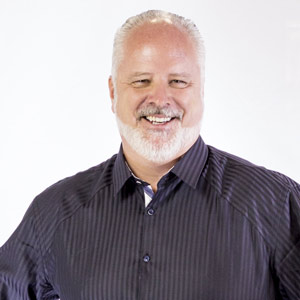For the second time in my professional life, I’m reading Stephen Covey’s “The 7 Habits Of Highly Effective People.” And in fact, I’m reading it along with our entire leadership team along with bi-weekly reviews and workshops with our CEO, Brent Snyder. We started this process a couple of months ago, and as we contemplate our uncertain conditions nowadays, our timing is fortuitous. Because it seems like just yesterday that Covey’s tenets helped one company thrive beyond expectations in the weeks and months after 9/11/2001.
First, a brief look at my initial encounter with Stephen Covey’s transformative book.
How To Be Proactively Creative
A few decades ago, my first read was admittedly difficult, at first. I had a clear vision for a digital business I was about to launch. But with no real experience, I needed to have a personal framework that would give it a chance for success. If you’ve read the book, you know the “hourglass” that outlines the process from dependence, through private victory, to independence, through public victory, and finally to interdependence. And Habit One is “Be Proactive.”
Being proactive was my first and biggest struggle. As a creative person, being proactive isn’t a trivial thing. And the business idea relied heavily on my ability to create artwork. Creativity is the intersection of serendipity and inspiration, which are the antithesis of proactivity. The book taught me to be self-aware and how to proactively foster distractions that are likely to spark inspiration and serendipity.
As I moved through the book and began to understand what I needed to do to be proactive, have an end in mind, and put first things first, I quit my job to devote my full energies to the business. It was stressful, but I needed to take that risk in order to start my journey from dependent, to independent. Slightly more than one year later, a popular computer magazine gave my product their top honors.
Deciding how to be proactive has never been more important than right now.
Highly Effective Companies In Uncertain Times
Fast-forward seven years, and I find myself running the digital department of a mid-sized ad agency in New York City. Our CEO was also a devotee of Covey, and we often reflected on sharpening our saws. Six months after moving my family to the city, the attacks on 9/11/2001 happened; the first stressful stimulus. To make matters worse, our largest client was in financial services, one block away from the World Trade Center. With their leadership camped out in our conference room they were essentially out of business; the next stressful stimulus. It was easy for all of us to be reactive and fall back into a dependent state of mind. Instead, I experienced a master class on how to apply Covey’s habits on the corporate level.
 Our CEO drew the hourglass illustration of the habits on the conference room whiteboard and turned to our client, “Right now you’re at the bottom, that’s the bad news. The good news is, so is your competition.” Several of our client’s leadership team knew where he was going with that, and we began planning for a plan. While their competition was being reactive and lobbying for economic stimuli for Wall Street, we were proactive.
Our CEO drew the hourglass illustration of the habits on the conference room whiteboard and turned to our client, “Right now you’re at the bottom, that’s the bad news. The good news is, so is your competition.” Several of our client’s leadership team knew where he was going with that, and we began planning for a plan. While their competition was being reactive and lobbying for economic stimuli for Wall Street, we were proactive.
The private victory for this financial services company involved a new brand position that was a secure “safe harbor.” It resonated exceptionally well because the public responded in droves, but most importantly, it was an accurate portrayal of their company culture. Over the next several months and quarters, we followed a plan that mirrored the progression of Covey’s lessons for personal change, applied on the corporate level. Their growth was meteoric, so much so that within three years, a much larger firm acquired them.
Don’t Be Reactive
Today’s pandemic crisis in this country is comparable to the days after 9/11/2001. There’s even a chance that the coming days will be an even larger reset for people and businesses. Pull your team together. Become self-aware. Choose to be proactive and act or be acted upon.


